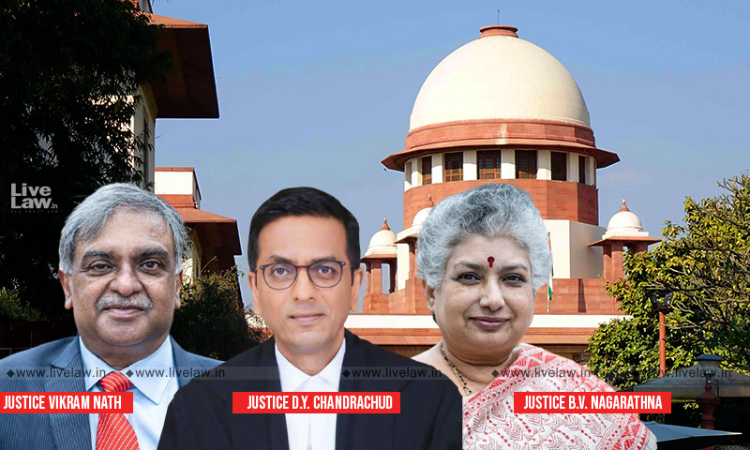Irregularity In Order Taking Cognizance Will Not Vitiate Criminal Proceedings : Supreme Court
LIVELAW NEWS NETWORK
30 Nov 2021 11:49 AM IST

Next Story
30 Nov 2021 11:49 AM IST
The Supreme Court has held that an irregularity in the order taking cognizance will not vitiate the proceedings in a criminal trial(case: Pradeep S Wodeyar vs State of Karnataka).A bench comprising Justice DY Chandrachud, Justice Vikram Nath and Justice BV Nagarathna was deciding an appeal filed against a judgment of the Karnataka High Court which dismissed the appellant's petition...
